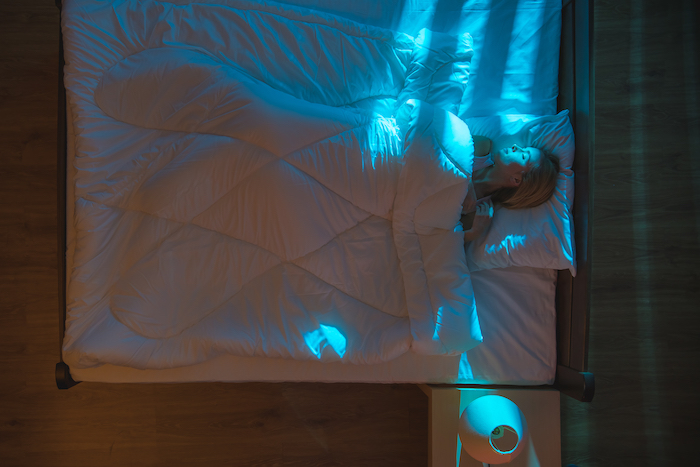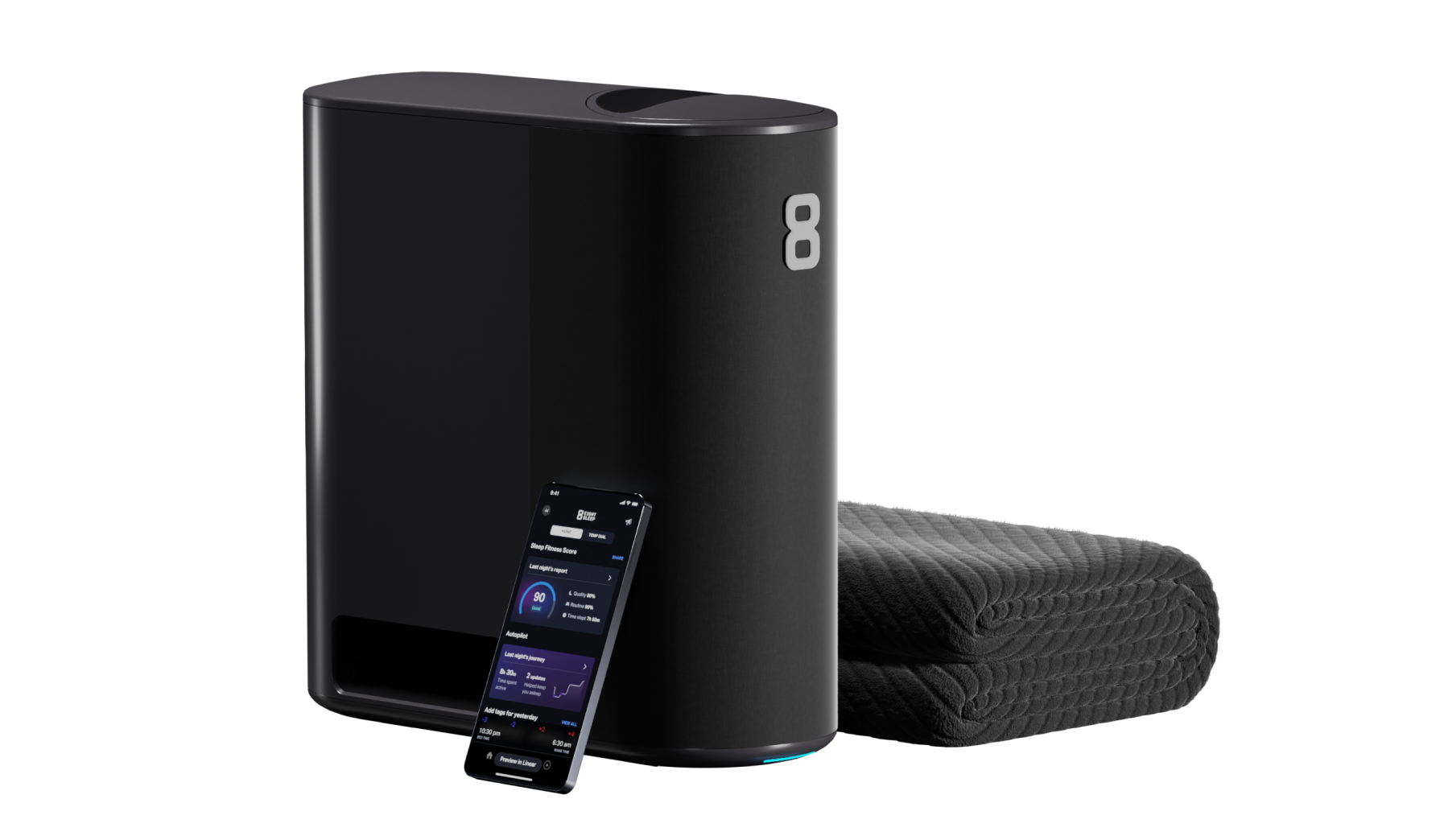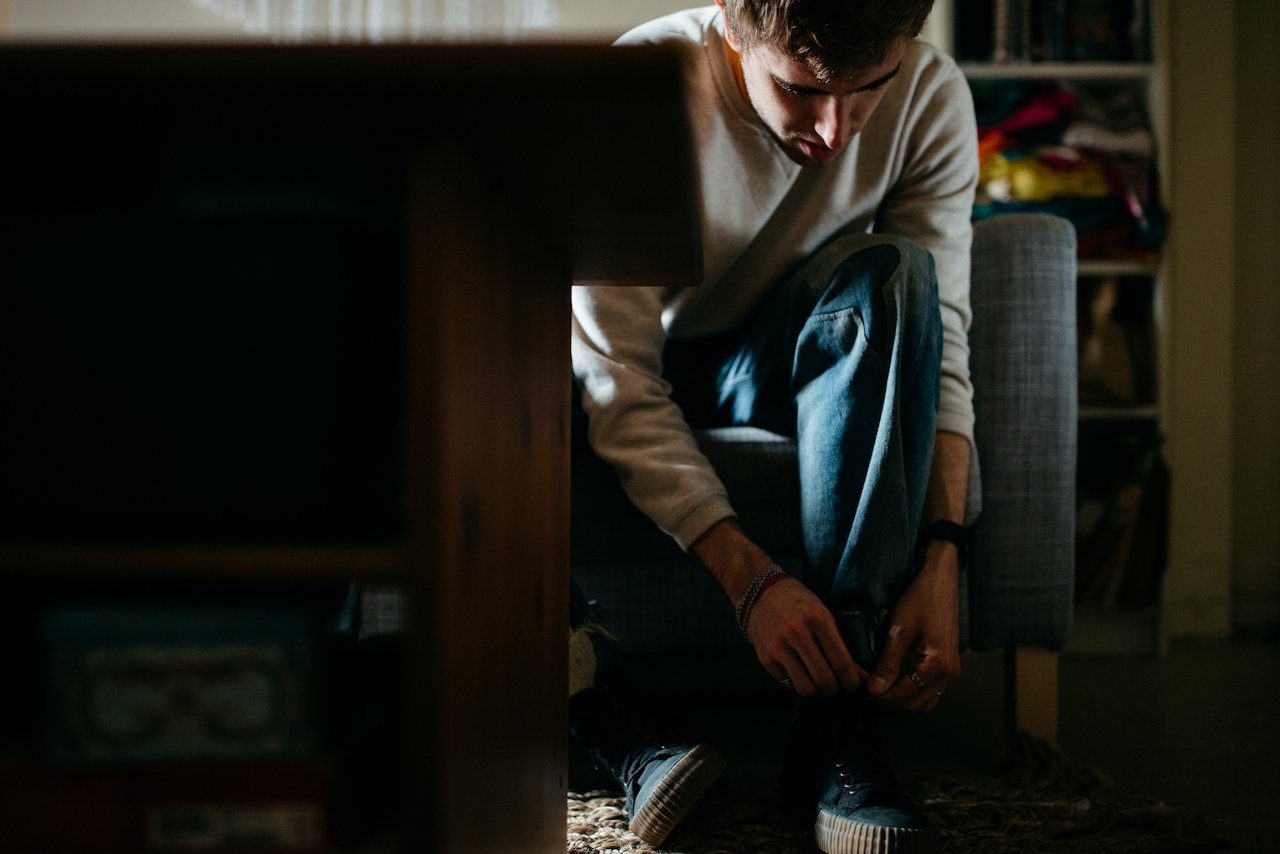An increase in stress is one of the most common links to sleep deprivation. Research from the American Psychological Association shows that over 40% of adults report their sleep quality as “fair or poor” with 43% reporting that stress is what’s causing them to lie awake at night. It’s a cyclical dilemma: the less a person sleeps, the more stress they feel about not sleeping. This negative sleep behavior can be difficult to undo, but the first step is finding the right stress relievers for you.
These days, most people are feeling this is easier said than done. After all, there is a healthy amount of feeling stressed in day-to-day life. Stress falls along a spectrum of occurrences that range from regular job stress, to big life events, such as divorce or death, to severe stress as a result of trauma. Some people experience it with greater frequency, while others may experience it temporarily in an intense state.
Regardless of when or how often stress happens, once it starts interfering with your well-being, specifically your sleep hygiene, it’s time to cope with stress. To determine how to improve your sleep and minimize elevated tension, you must be both proactive and preventative with your care — time to manage stress. These stress relief tips are a helpful guide to return you to a peaceful state.
Align Your Sleep Schedule with the Body’s Circadian Rhythm
Stress affects people in different ways. It can be exhausting to the extreme where late afternoon naps are common or stimulating to a point where insomnia becomes a regular occurrence. Both of these circumstances disrupt your natural circadian rhythm, which creates greater challenges falling asleep at night. Aim to go to bed and wake up at the same time every day to achieve at least eight hours of continuous, deep sleep.
Although naps are a quick way to give your body the extra rest it needs to deal with stress, limit them to 20-30 minutes in the early afternoon. This will keep you from staying awake for several hours past your set bedtime. On the other hand, if insomnia is a condition you’re struggling with, start a nightly relaxation regimen to calm the body and induce sleepiness.
Practice Meditation and Stillness to Quiet the Mind
With stress comes chaos. Meditation for sleep is a technique that prompts the body to relax and become still. Research has shown that meditation helps to reduce stress and other conditions, such as anxiety, chronic pain, and depression, all of which affect sleep. It emphasizes mindfulness, relaxation and controlled breathing to lower heart rate and reduce blood pressure.
Findings from a JAMA Network study revealed that after a systematic review of over 18,000 citations, evidence supported mindfulness meditation resulted in a small to moderate reduction of psychological stress. There are several different types, including guided meditation, mantra meditation, and yoga. There’s no one-size-fits-all solution. It’s based on whatever works best for your schedule and stress needs.
Meditation may be performed at home or under the guidance of others. It involves a connection to the breath and allowing thoughts to freely pass through the mind without hanging on to any single one. A quick, five-minute meditation that focuses on slowing down your breathing and engaging in positive thoughts is just as effective as an hour-long guided meditation class.
Exercise Regularly to Raise Endorphin Levels
Evidence has shown exercise to be a positive link to stress reduction for several reasons. The first is the physiological benefits it provides. Exercise reduces the level of stress hormones, like cortisol, while at the same time increasing the production of endorphins. Endorphins are the body’s natural way to alleviate pain and boost your mood. In terms of long-term health exercise promotes good heart health and strengthens the immune system.
The recommended amount of exercise is 20-30 minutes per day, five days a week. An article posted by Harvard Medical School also offers shorter progressive muscle relaxation exercises to alleviate muscle tension and reduce stress. This involves stretching from head-to-toe, by holding a pose and relaxing before moving on to the next body part. Examples include:
- Arching the back
- Curing the toes
- Tensing the stomach muscles
- Tightly closing the eyes
Holding contractions for at least 20 seconds before releasing allows muscles to fully relax. When used in combination with regular physical activity and mindful meditation, these exercises are stress relieving.
Limit the Amount of Screen Time (Especially Before Bed)
Limiting screen time improves stress relief and sleep habits. Turn off notifications from social media apps, leave your phone in another room while sleeping, and stop using all electronics at least two hours before bed. Take it another step further and remove distracting apps from your phone to avoid the temptation of always being online.
According to 2018 Nielsen research, adults spend over nine and a half more hours every day interacting with media than they did four years prior. This includes the use of smartphones, TVs, laptops, and other electronic devices that increase stress levels and affect sleeping habits. While many people use screen time as a way to unwind, the overexposure to blue light and online content being has a greater influence on stress levels than you might initially think.
Why is blue light bad? Blue light emitted from electronic screens signals the brain that it’s time to be alert and awake and throws off the body’s sleep-wake rhythm. Plus, the immediate connectivity that technology now provides leads to stress based on anxiety and anticipation. The American Psychological Association reports that over 80 percent of Americans are constantly connected to at least one device, with 18 percent of adults identifying technology as a “somewhat or very significant” source of stress.
The same survey also found that 65 percent of Americans felt that periodically “unplugging” was important for mental health, but only 28 percent actually followed through with a digital detox. Investing in a pair of Blue Wave glasses is a great way to reduce the amount of blue light exposure as well as replacing your evening screentime with exercise, meditation, reading, or other non-digital activities.
Avoid Alcohol as a Way to Relax
Having a drink at night to unwind is normal for many, but when dealing with high-stress situations, it perpetuates poor sleep hygiene. Having more than one drink of alcohol increases feelings of drowsiness and prevents you from achieving deep REM sleep. And during the lighter stages of sleep, it’s common to experience frequent disturbances. Alcohol consumption can also lead to snoring or problems breathing during the night, cutting into your sleep schedule.
Don’t rely on alcohol as a stress reliever before bed. Instead, try drinking a cup of hot, decaffeinated tea or warm milk. Furthermore, taking a warm bath or shower is soothing and can result in better sleep.
Write or Talk It Out to Feel Supported
Journaling or writing down a list of tasks and priorities often allow people to feel in control of their daily lives when stressors become overwhelming. In addition, writing about feelings and thoughts that are generated from stressful experiences may be an effective technique. Dr. James Pennebaker from the University of Texas has conducted research that shows how expressive writing has helped people with conditions, including migraines, sleep apnea, and other stress-related physical symptoms and illnesses.
Most of the outcomes have been measured by physical findings, such as lower heart rate and blood pressure. But one study involving college students showed how expressive writing for six months resulted in less frequent use of pain relievers and less visits to the campus health center. If writing isn’t a favored method, talk with close friends or trusted family members about what’s causing you stress. The act of engaging with others often works as a stress reliever versus holding onto tension.
Create a Comfortable Space for Sleeping
Consistent, adequate sleep is largely dependent on where you’re sleeping. A comfortable mattress, the right sleep temperature, and a quiet, dark room is the best combination for optimal sleep. Engaging in low-key activities before bed eases the transition from daily stressors to relaxation.
Reduce the amount of stimulation to allow the body to rest as you have quieter moments before bed. Allow yourself to focus on one activity at a time rather than having multiple things happening at the same time. Consider your bedroom a haven from the stressors of the world and set it up in a way that is most beneficial to you.
Sleep More, Stress Less
Stress takes a physical and mental toll on the body, which requires extra time for the body to recover. Practice healthy sleep habits as much as possible, especially when you’re experiencing times of high stress. Listening to your body and focusing on a regular sleep schedule gives your body a state of normalcy during an otherwise hectic time. Introduce a few of these tips and techniques and feel how stress relief benefits your overall wellness.
But…the best and easiest way to improve your sleep? The temperature adjusting Eight Sleep Pod 3.
Sources: https://www.apa.org/news/press/releases/stress/2013/sleep; https://www.mayoclinic.org/tests-procedures/meditation/in-depth/meditation/art-20045858;https://jamanetwork.com/journals/jamainternalmedicine/fullarticle/1809754?973; https://www.health.harvard.edu/staying-healthy/exercising-to-relax; https://www.psychologytoday.com/us/blog/tech-happy-life/201812/how-much-screen-time-is-too-much; https://www.apa.org/topics/healthy-technology-use; https://www.health.harvard.edu/healthbeat/writing-about-emotions-may-ease-stress-and-trauma





